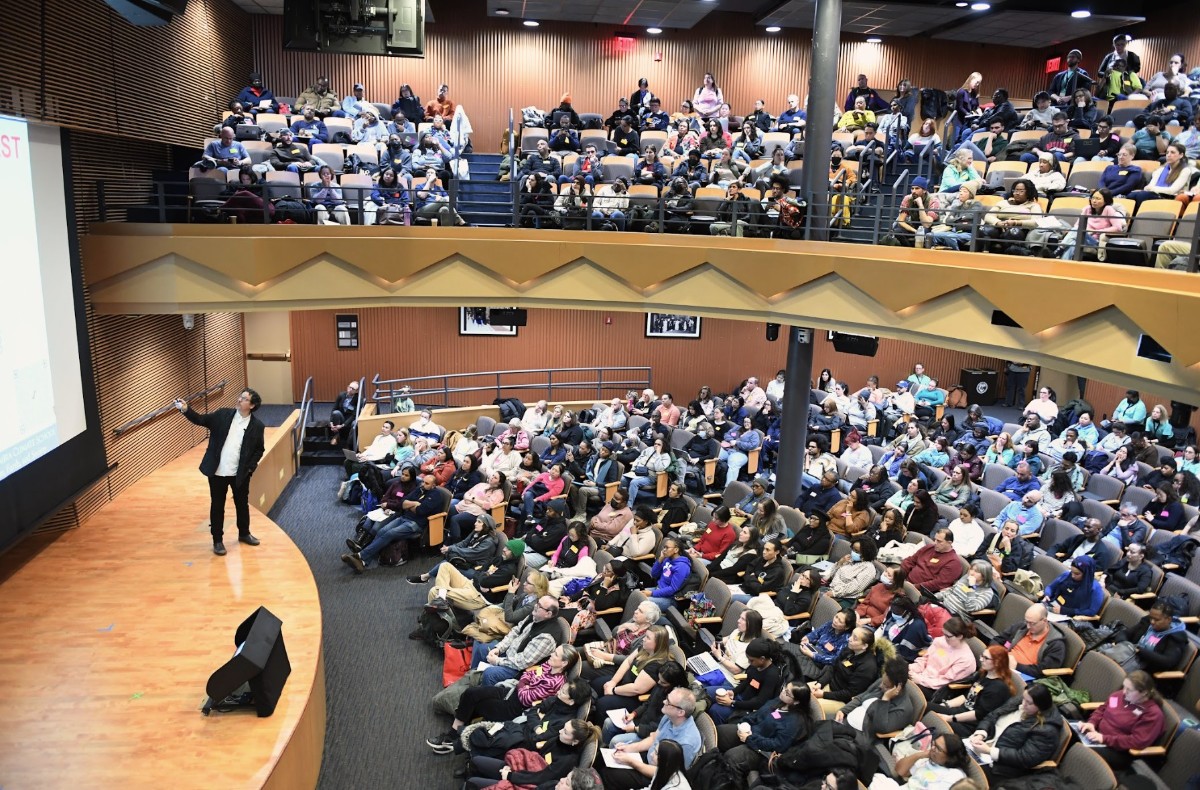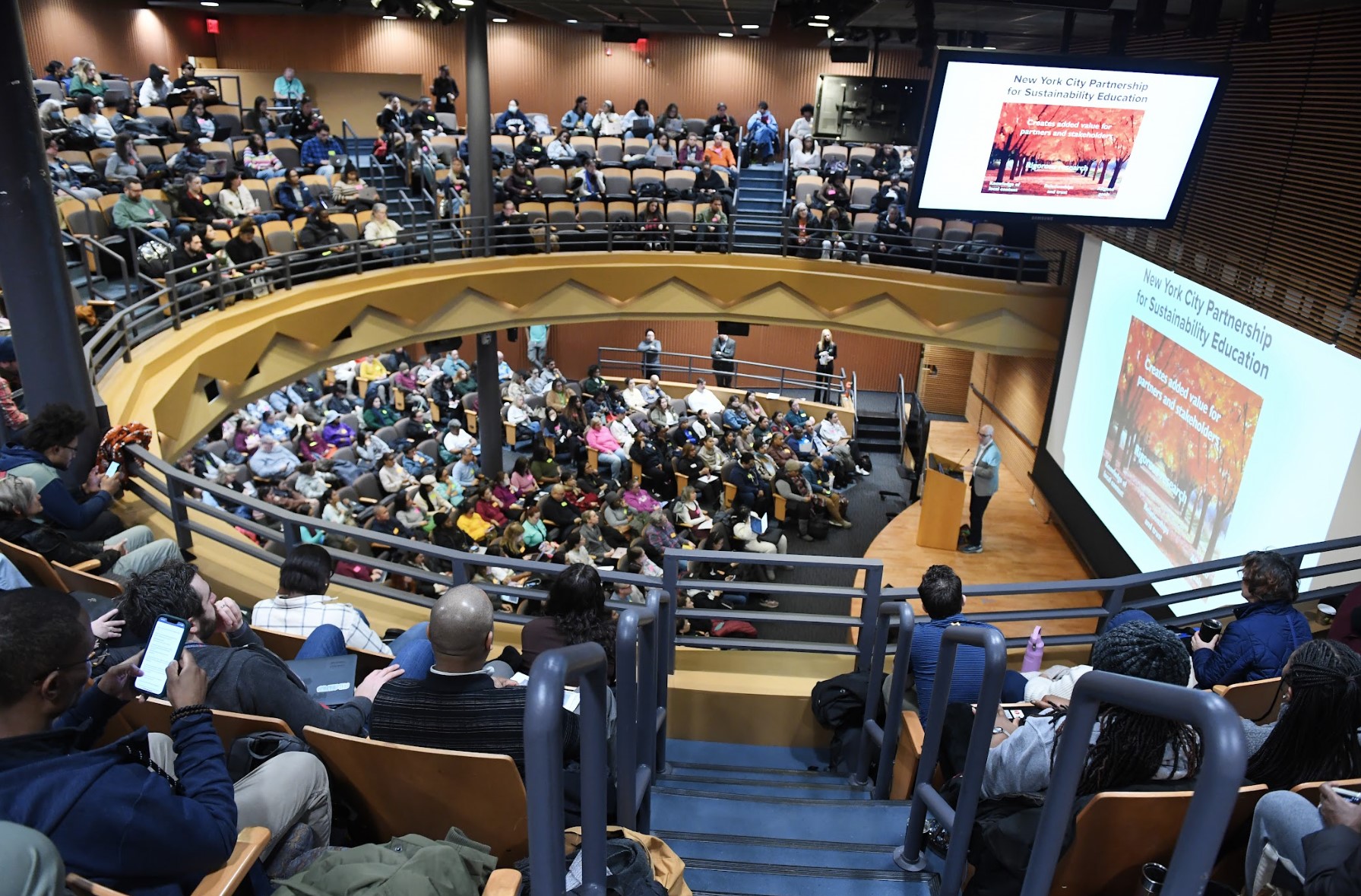The Midwinter Climate Institute 2025 has just concluded, leaving behind a wave of inspiration and new resources for 500 New York City Public School (NYCPS) educators committed to integrating climate change education (CCE) into their classrooms. Held over three days—two in-person sessions at Teachers College, Columbia University, and one remote learning day—this Institute provided a collaborative space for K-12 teachers to engage with experts, exchange best practices, and explore multidisciplinary approaches to climate education. Funded by the NYC Mayor’s Office, anc co-sponsored by The Earth Network: Climate Education for a Resilient Future and Subject to Climate, the initiative is part of a broader effort to embed CCE in all NYCPS schools, aligning with the city's strategy to empower Sustainability Coordinators, implement Climate Action Days, and provide robust professional development opportunities for educators.
The event began with opening remarks by KerryAnn O’Meara, Vice President for Academic Affairs, Provost and Dean of the College:
“The work you are doing is interdisciplinary—cutting across fields and assuming that learning about climate is not something we do only in a science class, but also has implications for how students learn writing, history, engage in the arts, and develop identity as mathematicians and citizens.
The work you are doing situates the latest research and data science on climate, student learning and agency, and teacher knowledge of best practices-- together—and assumes one is not more important than the other for creating sustainable futures.
Last but not least--this Institute has been built with accessibility in mind. With funding from NYC, this professional development opportunity is open for free to 500 teachers. The MWI wants you to share the multidisciplinary instructional content and educational resources you will encounter for K-12 educators with colleagues that were not able to be here today, and have made materials available online.
Interdisciplinarity, teacher agency, and accessibility are three values TC shares with this institute and its creators. This Institute is truly emblematic of the wide cross-disciplinary view of education, psychology, and health that has characterized TC from its beginning.”
A Dynamic Lineup of Experts and Organizations
The institute kicked off with presentations from leading climate experts. Sophia Powless (MA ‘22, Climate and Society), a Program Coordinator at The Aspen Institute, delivered opening remarks on the power of individualized climate stories and how they can be used to connect with students in and outside of classrooms. Dr. Jason Smerdon, a climate scientist at Columbia University, then provided foundational insights into climate systems, helping teachers build a working knowledge of the science and impacts of climate change. Organizations such as Subject to Climate led workshops and presentations tailored to developing teaching resources that make climate education accessible across diverse disciplines, while public works such as NYC Parks highlighted how urban green spaces play a crucial role in climate resilience. Educators also engaged with environmental organizations, including the Billion Oyster Project, Wildlife Conservation Society, The Horticultural Society of New York, and Children’s Environmental Literacy Foundation, each offering hands-on strategies to bring climate literacy into schools.
CSF’s Workshop on the Impacts of Climate Change Across Generations
Our very own Center for Sustainable Futures (CSF) also ran a workshop that enabled educators to study the intergenerational impacts of climate change. These sessions offered teachers a hands-on opportunity to explore CO2 emissions and changes in global temperature data from the past 100 years, delving into how these metrics have changed and the immediate effects on the planet and on future generations. CSF provided tools for educators to help their students understand how these changes impact different generations and how this knowledge can be integrated across multiple subjects. The workshop encouraged teachers to develop ways to incorporate these findings into their own disciplines, whether it’s through math by analyzing data trends, history by discussing past events, or science by exploring the direct effects of climate change on particular local contexts.
Our Participants Say…
“I'm appreciative of the fact that people are actively advocating for addressing climate change, and what better way to do so by starting with educators.”
“I left this workshop with some concrete ideas of activities that I can do with my class. I was also reminded to include the positive developments that have been made.”
“I’m inspired to spread knowledge about climate change. I would like more information on it in layman’s terms. I started with very little knowledge on climate change and now I think I am a bit more comfortable in the area. Knowing that I’m now a little more knowledgeable about what I can do as a human being and an educator to inform others.”
“The [intergenerational] activity was wonderful for engaging students in analyzing the exponential increase in Co2 levels across generations and the relationship between these levels and temperature.”
"The generational family activity was engaging and informative. Can be used during staff PDs and in classrooms."
“I feel like I’ve been provided with more tools to place in my climate change toolbox when presenting to my students.”
A Hopeful Path Forward
As the Midwinter Climate Institute 2025 wraps up, its impact is just beginning. With 500 educators now better equipped to integrate climate literacy across subjects, NYC students will gain a deeper understanding of climate change and its solutions—ensuring the next generation is prepared to confront environmental challenges with knowledge, creativity, and action. The momentum from this institute reflects a broader movement—one where teachers, students, and communities come together to build a more resilient and climate-conscious future for New York City and beyond.















